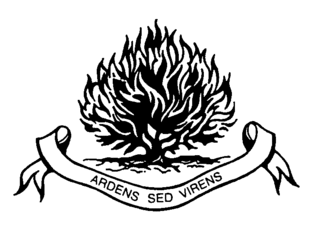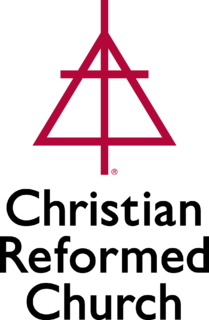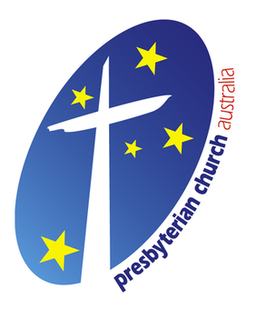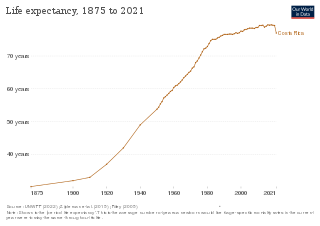Related Research Articles

Presbyterianism is a part of the Reformed tradition within Protestantism that traces its origin to the Church of Scotland. Presbyterian churches derive their name from the presbyterian form of church government by representative assemblies of elders. Many Reformed churches are organised this way, but the word Presbyterian, when capitalized, is often applied uniquely to churches that trace their roots to the Church of Scotland or to English Dissenter groups that formed during the English Civil War.

The Christian Reformed Church in North America is a Protestant Calvinist Christian denomination in the United States and Canada. Having roots in the Dutch Reformed Church of the Netherlands, the Christian Reformed Church was founded by Dutch immigrants in 1857 and is theologically Calvinist.

The Reformed Church in the United States (RCUS) is a Protestant Christian denomination in the United States. The present RCUS is a conservative, Calvinist denomination. It affirms the principles of the Reformation: Sola scriptura, Solus Christus, Sola gratia, Sola fide, and Soli Deo gloria. The RCUS has membership concentrated in the Midwest and California.

The Presbyterian Church of Australia (PCA) is the largest Presbyterian denomination in Australia.
The Congregation of Our Lady of Sion is composed of two Roman Catholic religious congregations founded in Paris, France. One is composed of Catholic priests and Religious Brothers, founded in 1852, and the other is composed of Religious Sisters, founded in 1843, both by Marie Theodor Ratisbonne, along with his brother Marie-Alphonse Ratisbonne, "to witness in the Church and in the world that God continues to be faithful in his love for the Jewish people and to hasten the fulfillment of the promises concerning the Jews and the Gentiles.".
The Sudanese Reformed Presbyterian Churches (SRPC) are a unified body of Protestant Churches in Sudan.
The East Java Christian Church is a congregation of Christian and Reformed churches based on Indonesian Javanese ethnicity, located in Java, Indonesia.

Costa Rica provides universal health care to its citizens and permanent residents. Both the private and public health care systems in Costa Rica are continually being upgraded. Statistics from the World Health Organization (WHO) frequently place Costa Rica in the top country rankings in the world for long life expectancy. WHO's 2000 survey ranked Costa Rica as having the 36th best health care system, placing it one spot above the United States at the time. In addition, the UN has ranked Costa Rica’s public health system within the top 20 worldwide and the number 1 in Latin America.

The National Presbyterian Church in Mexico is the second-largest Protestant church, and the largest Reformed denomination in Mexico. It is present throughout the country, and is particularly strong in the states of Tabasco, Chiapas, Campeche, Yucatan, Nuevo León, Aguascalientes and Mexico City.
The Presbyterian Church of the Philippines (PCP), officially The General Assembly of the Presbyterian Church of the Philippines, is a growing evangelical, Bible-based Reformed church in the Philippines. It was officially founded in 1987 and the General Assembly was organized in September 1996.
The Africa Evangelical Presbyterian Church (AEPC) is a growing conservative Presbyterian and Reformed Church which adheres to the Westminster Confession of Faith started in Kenya, later spread to the surrounding countries like Burundi, Tanzania, Congo and as far as Zimbabwe. The headquarters of the church is located in Nairobi, Kenya. The current Moderator is Rev. Dr Joseph Mutei installed on Sunday 26th June 2022
The Christian Reformed Church in Sierra Leone is a Protestant Reformed denomination in Sierra Leone. It was founded by American missionaries in the 1960s.
The Reformed Church in Zambia is among the biggest Reformed churches in the country of Zambia.
The Gereja-Gereja Reformasi di Indonesia or the Indonesian Reformed Churches is a confessional Reformed church in the country of Indonesia established by orthodox Calvinist Dutch missionaries.
The Christian Reformed Church in the Philippines is a Calvinist denomination in the Philippines, founded by American missionaries in the mid-1900.
The Costa Rican Evangelical Presbyterian Church was formed in 1985 as the Fraternity of Evangelical Costa Rican Churches. Its original constituent members were five churches in metropolitan San José that separated from the Association of Biblical Churches in Costa Rica (AIBC). The denomination had 1000 members, 12 congregations and three house fellowships in 2004. Now, the denomination includes 24 worship communities. The denomination adopted its current name in 2005.

The Evangelical Church of the River Plate is a United, Protestant denomination with congregations in Argentina, Paraguay, and Uruguay. It is named after the Río de la Plata Basin, where the majority of its congregations are located. The IERP was affiliated with the Evangelical Church in Germany from 1934–1965, when it became independent. The church ordains women as ministers and supported civil unions and same-sex marriage. It has approximately 27,500 members.

The First Costa Rican Republic is the name given to the historical period between the proclamation of the Republic of Costa Rica in the 1848 reformed Constitution and the official decree by then President José María Castro Madriz on 31 August 1848 and the Costa Rican Civil War of 1948 which ended with the enactment of the current 1949 Constitution on 7 November 1949 starting the Second Costa Rican Republic.

The Reform State or Reformist State is a period in Costa Rican history characterized by the change in political and economic paradigm switching from the uncontrolled capitalism and laissez faire of the Liberal State into a more economically progressive Welfare State. The period ranges from approximately 1940 starting with the presidency of social reformer Rafael Angel Calderón Guardia and ends around the 1980s with the first neoliberal and Washington Consensus reforms that began after the government of Luis Alberto Monge.
References
- ↑ Fasse, Christoph. "Address data base of Reformed churches and institutions". Reformiert-online.net.
- ↑ "CRWM: Costa Rica - Christian Reformed Church". Archived from the original on 2013-03-18. Retrieved 2013-03-15.
- ↑ "Capilla Cristiana Reformada Bethuel de Esparza". Archived from the original on 2013-10-03. Retrieved 2013-06-27.